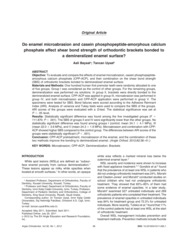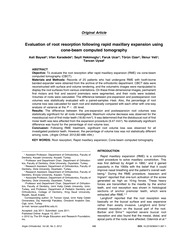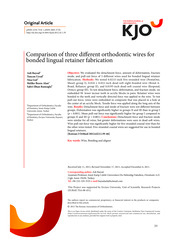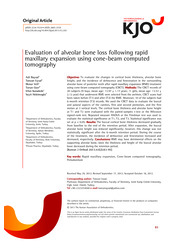Filtreler
Filtreler
Bulunan: 5 Adet 0.000 sn
Kayıt Giriş Tarihi : 09.06.2014 ✕Tür : Makale ✕Koleksiyon : FAKÜLTELER ✕Koleksiyon : DİŞ HEKİMLİĞİ FAKÜLT ... ✕Koleksiyon : KLİNİK BİLİMLER BÖLÜ ... ✕Koleksiyon : KLİNİK BİLİMLER BÖLÜ ... ✕İlgili Araştırmacılar : ASLI BAYSAL ✕






